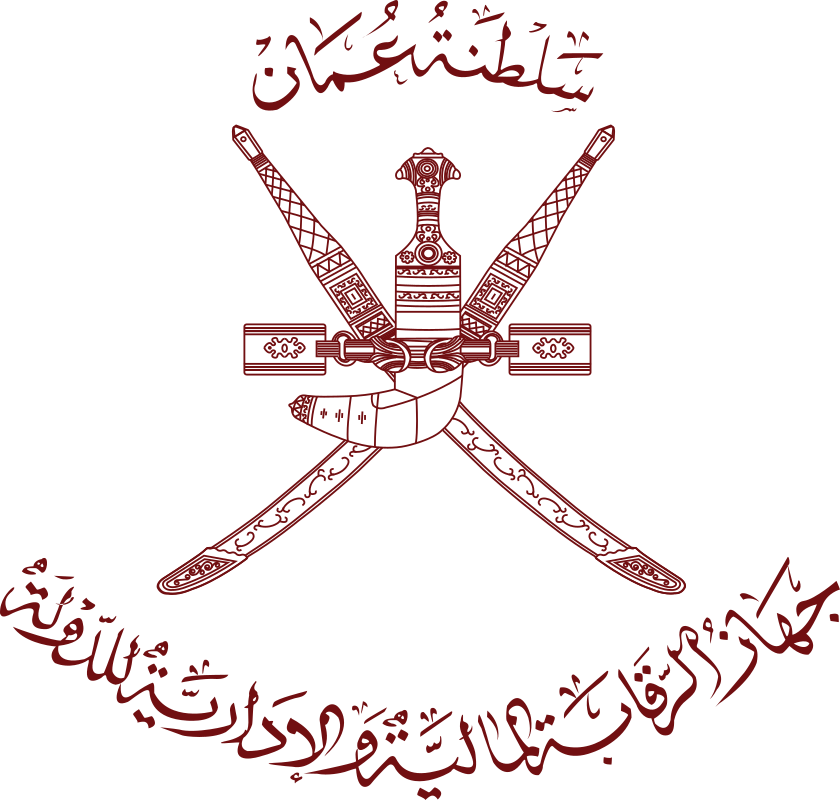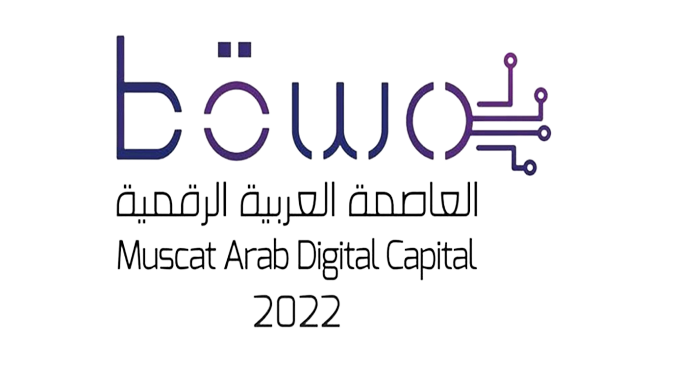الأسئلة الشائعة
بدأت الرقابة المالية منذ مطلع النهضة المباركة في العام 1970، ومرت بالعديد من مراحل التطور على مستوى التبعية والتسمية والهيكل التنظيمي والقوانين والاختصاصات.
المقر الرئيسي للجهاز يقع في محافظة مسقط بمنطقة البستان، وللجهاز ستة أفرع في كل من: صلالة وصحار ونزوى والرستاق والبريمي وصور.
|
1- وحدات الجهاز الإداري للدولة إلا ما استثني منها بنص خاص في مرسوم إنشائها. 2- الهيئات والمؤسسات العامة وغيرها من الأشخاص الاعتبارية العامة. 3- صناديق الاستثمار وصناديق التقاعد وأي صناديق حكومية أخرى. 4- الشركات المملوكة للحكومة بالكامل أو تلك التي تساهم فيها، بنسبة تزيد على (40%) من رأسمالها، الجهات المشمولة برقابة الجهاز منفردة أو مجتمعة وتلك التي منحتها الحكومة امتياز استخدام مرفق عام أو مورد من موارد الثروة الطبيعية، والشركات والمؤسسات التي يتم التعاقد معها أو الترخيص لها بإدارة أو تشغيل أي من الأموال العامة، وذلك دون الإخلال بأي أحكام خاصة قد تنص عليها القوانين والمراسيم السلطانية الصادرة بشأنها والاتفاقيات التي تبرم مع الحكومة تنفيذا لها. ولا تخل رقابة الجهاز بحق هذه الشركات في أن يكون لها مراقبو حسابات تعينهم الجمعية العامة وفقا لأحكام قانون الشركات التجارية. 5- الأموال الخاصة التي تديرها أو تشرف عليها أي من الوحدات المشمولة برقابة الجهاز. 6- الجهات غير المشمولة برقابة الجهاز، بناء على طلب تلك الجهات، إذا رأى الجهاز أن المصلحة العامة تقتضي ذلك. |
1- الرقابة المالية بشقيها المحاسبي والقانوني.
2- الرقابة الإدارية.
3- رقابة الأداء.
4- الرقابة على القرارات الصادرة في شأن المخالفات المالية.
5- الرقابة على الاستثمارات وكافة حسابات الجهات الخاضعة لرقابة الجهاز.
6- أي أعمال يكلف بها الجهاز من جلالة السلطان.
حماية الأموال العامة للدولة والأموال الخاصة التي تديرها أو تشرف عليها أي من الوحدات الخاضعة لرقابة الجهاز والتثبت من مدى ملاءمة أنظمة الضبط والرقابة الداخلية وسلامة التصرفات المالية والإدارية واتباعها للقوانين واللوائح والقرارات التنظيمية.
- التحقق من تنفيذ القوانين واللوائح والنظم والقرارات فيما يتعلق باختصاصاته.
- تجنب وقوع تضارب المصالح والمخالفات المالية والإدارية.
- بيان أوجه النقص أو القصور في القوانين واللوائح والأنظمة المالية والإدارية المعمول بها واقتراح وسائل علاجها.
- الرقابة الوقائية والتأكد من حسن سير العمل.
- تقييم أداء الجهات الخاضعة لرقابة الجهاز والتحقق من استخدام الموارد بطريقة اقتصادية وبكفاءة وفاعلية.
- الكشف عن أسباب القصور في الأداء والإنتاج وتحديد المسؤولية.
عند اكتشاف الجهاز لأية مخالفة مالية أو إدارية يقوم بإعمال اختصاصه بالطلب من الجهة التي وقعت بها المخالفة بإجراء التحقيق اللازم مع الموظف المسؤول عنها واتخاذ الإجراءات التحفظية مع التزامها بإجراء التحقيق المطلوب فور إخطارها بذلك.
أما إذا كانت المخالفة تشكل شبهة أو جريمة جنائية فيستكمل الجهاز إجراءاته الرقابية والإدارية ومن ثم يحيل تلك المخالفات إلى الإدعاء العام، الذي يتولى تنفيذ اختصاصاته بشأنها وفقا للقوانين المنظمة لعمله.
يعمل الجهاز من خلال تنفيذ مهام الفحص في مجالات الرقابة المختلفة على تحديد الملاحظات التي تم اكتشافها نتيجة مراجعة الأعمال المالية والإدارية بالإضافة إلى تقييم أداء الجهة محل الفحص، وتقديم التوصيات المناسبة لتصويبها بما يؤدي إلى تحقيق التحصيل والاسترداد المالي وتصحيح الإجراءات وتعديل التشريعات، ومن هنا يتم توجيه موارد الجهات لاستخدامها باقتصاد وكفاءة وفاعلية في ضوء تنفيذها لاختصاصاتها وتحقيقها للأهداف التي أنشأت لأجلها.
يتم اختيار موضوعات الفحص بناء على منهجية تعتمد على تحليل المخاطر وتحديد الأهمية النسبية وفق نموذج مخصص لهذا الغرض.
نعم، يقوم الجهاز بتنفيذ مهام فحص لتقييم أداء ومستوى جودة وكفاءة الخدمات المقدمة من الجهات الخاضعة لرقابته.
1- التقرير بنتيجة الفحص.
2- التقارير الخاصة.
3- التقرير السنوي.
هو التقرير المجمع بنتائج أعمال الجهاز خلال السنة المالية، ويرفعه رئيس الجهاز إلى جلالة السلطان، كما يرسل نسخة منه إلى مجلس الوزراء ومجلسي الشورى والدولة.
يرفع رئيس الجهاز التقرير السنوي إلى جلالة السلطان قبل نهاية السنة المالية التالية.
يتم إعداد التقارير الرقابية وفقاً للمعايير الدولية والإرشادات الصادرة عن المنظمات الدولية ذات العلاقة بما لا يتعارض مع القوانين واللوائح والأنظمة السارية.
يعتبر من المخالفات المالية والإدارية عدم الرد على التقارير والملاحظات أو المكاتبات المتعلقة بالرقابة أو التأخير في الرد عليها بغير مبرر ويعاقب كل من يخالف ذلك بالسجن مدة لا تقل عن ستة أشهر ولا تزيد على سنة وبغرامة لا تقل عن (1000) ألف ريال عماني ولا تزيد على (2000) ألفي ريال عماني أو بإحدى هاتين العقوبتين.
المادة رقم (32) بدلالة المادة رقم (31) من قانون الرقابة المالية والإدارية للدولة
يعمل الجهاز على التعاون مع مؤسسات الدولة في إطار تكاملي وفق اختصاصات كل مؤسسة وبما يسهم في تحقيق الأهداف بكفاءة، ويتبنى الجهاز استراتيجية للتعامل مع الأطراف ذات العلاقة القائمة على مبدأ التنسيق والتعاون بما يحقق المصلحة العامة.
نعم، يباشر الجهاز بحث ودراسة الشكاوى والبلاغات المتعلقة بمخالفة الجهات الخاضعة لرقابته للقوانين والأنظمة واللوائح والقرارات المعمول بها أو الإهمال أو التقصير في أداء واجبات الوظيفة العامة أو المساس بالمال العام، بما لا يتعارض مع اختصاص الجهات القضائية وغيرها من الجهات الأخرى ذات العلاقة.
يتيح الجهاز تقديم الشكاوى والبلاغات بإحدى الطرق الآتية:
1- نافذة البلاغات عبر الموقع الإلكتروني للجهاز www.sai.gov.om
2- تطبيق الهواتف الذكية State Audit Oman
3- الحضور إلى مقر الجهاز بمسقط أو أحد أفرعه في: صلالة وصحار ونزوى والرستاق والبريمي وصور.
4- البريد الإلكتروني
(complaints@sai.gov.om)
5- الفاكس (22070660)
6- البريد العادي (صندوق البريد 727/ الرمز البريدي 100 مسقط)
يقوم الجهاز ببحث ودراسة الشكوى والبلاغ دون الإفصاح عن اسم مقدمها إلا إذا كانت الشكوى أو البلاغ تتعلق بحق من حقوقه.
نعم، يقوم الجهاز برصد وبحث ودراسة ما يتم نشره في وسائل الإعلام المختلفة وشبكات التواصل الاجتماعي، من شكاوى أو تحقيقات صحفية أو مقالات تتناول نواحي الإهمال أو التقصير أو استغلال الوظيفة العامة أو المساس بالمال العام.
1- سبق فحصها من قبل الجهاز.
2- سبق الفصل فيها من قبل القضاء.
3- إذا كانت منظورة أمام القضاء.
4- لعدم صحتها أو لعدم الأهمية أو لعدم وجود وقائع محددة.
وللجهاز حفظ الشكوى أو البلاغ لأي سبب آخر حسبما تقتضيه مصلحة العمل
إن التقاضي هو حق دستوري تكفله الدساتير وكفله النظام الأساسي للدولة، ويمكن لكل ذي مصلحة أن يتقدم إلى القضاء للمطالبة بحق من حقوقه، وبالتالي يتم التوجّه للمحاكم لرفع الدعاوى الإدارية لمراجعة القرارات الإدارية أو للمطالبة بحقوق أو تعويضات وفق القانون وبحسب المواعيد المقررة لذلك، أما التقدم لدى جهاز الرقابة المالية والإدارية للدولة فيكون لتقديم شكاوى وبلاغات تتعلق بمخالفة الجهات المشمولة برقابته للقوانين والأنظمة المعمول بها أو الإهمال أو التقصير في أداء واجبات الوظيفة العامة أو المساس بالمال العام، بما لا يتعارض مع اختصاص الجهات القضائية وغيرها من الجهات ذات العلاقة، علماً بأن الجهاز يقوم بحفظ الشكاوى والبلاغات التي سبق الفصل فيها من قبل القضاء أو إذا كانت منظورة أمامه.
يتولى الجهاز فحص الشكاوى والبلاغات الواردة إليه بحسب الأهمية الموضوعية ووفقا لخطة الفحص المعتمدة، وللجهاز الرد على مقدم الشكوى أو المبلغ بالطرق الملائمة متى ما تعلقت بحق من حقوقه، كما يمكن للجهاز أن يبلغ نتيجة فحص الشكاوى والبلاغات الواردة إليه للمختصين بالجهات محل الشكوى أو البلاغ ويتابع تنفيذ توصياته طبقاً للآلية المتبعة، علما بأنه لا يجوز إطلاع غير ذوي الاختصاص على هذه النتائج والتوصيات، كما لا يجوز الإفصاح عن اسم مقدم الشكوى أو المبلغ إلا إذا كانت الشكوى أو البلاغ يتعلق بحق من حقوقه.
كل شخص يشغل منصباً حكومياً، أو يتولى عملاً بصفة دائمة أو مؤقتة في إحدى وحدات الجهاز الإداري للدولة بمقابل أو بدون مقابل، ويعتبر في حكم المسؤول الحكومي أعضاء مجلس عمان، وممثلو الحكومة في الشركات، والعاملون بالشركات المملوكة للحكومة بالكامل أو تلك التي تساهم فيها بنسبة تزيد على (40%) من رأسمالها.
كل عقار أو منقول مملوك ملكية عامة او خاصة للدولة أو لإحدى وحدات الجهاز الإداري بها أو الشركات التي تساهم فيها الحكومة بنسبة تزيد على (40%)، والأموال الخاصة التي تديرها أو تشرف عليها تلك الوحدات، كأموال الوقف والزكاة، وأموال الأيتام والقصر.
يلتزم المسؤول الحكومي بالآتي:
1- أن يحول دون إساءة استعمال المال العام، وأن يبلغ الجهات المختصة فوراً بما يثبت لديه من مخالفات تتعلق بالمال العام.
2- تقديم إفصاح سنوي لجهاز الرقابة المالية والإدارية للدولة، يتضمن جميع التعاملات مع الوحدات الحكومية والمنشآت التي تملك الحكومة أكثر من (40%) من رأسمالها.
3- تقديم إقرار بذمته المالية إلى جهاز الرقابة المالية والإدارية للدولة، ويتضمن بياناً بجميع الأموال المنقولة والعقارية المملوكة له ولأزواجه وأولاده القصر، ومصدر هذه الملكية.
4- عدم إفشاء الأسرار التي يطلع عليها بحكم وظيفته أو عمله، ويستمر هذا الحظر قائماً بعد انتهاء العلاقة الوظيفية.
يحظر على المسؤول الحكومي الآتي:
1- إبرام أي تصرف يؤدي إلى المساس بالمال العام أو تبديده.
2- استغلال منصبه أو عمله لتحقيق منفعة له أو لغيره أو استغلال نفوذه ليسهل لغيره الحصول على منفعة، أو معاملة متميزة.
3- القيام بدور الوسيط أو الوكيل أو الكفيل لأي شركة أو مؤسسة يتصل نشاطها بجهة عمله.
4- استعمال الأموال العامة في أغراض شخصية أو في غير الأغراض المخصصة لها.
5- الجمع بين منصبه أو عمله، بصفة دائمة أو مؤقتة، وأي عمل آخر في القطاع الخاص يتصل بمنصبه أو عمله، إلا بعد الحصول على ترخيص بذلك.
6- أن يكون له أو لأبنائه القصر حصة في أي شركة أو مؤسسة أو عمل يهدف إلى الربح، ويتصل بجهة عمله بطريقة مباشرة.
هو الإفصاح عن ما يملكه المسؤول الحكومي وأزواجه وأولاده القصر من أموال نقدية وعقارية ومنقولة، ومصادر الدخل وأنشطتهم التجارية والعقارية، بما في ذلك الأسهم والسندات والحصص في الشركات والحسابات البنكية، سواء كانت تلك الأموال داخل الدولة أو خارجها.
يتم تقديم إقرار الذمة المالية بموجب طلب من رئيس الجهاز ويتم تقديمه وفق الخطوات الآتية:
1. تحميل نموذج الإقرار من خلال الرابط المخصص وفقاً لصيغة البرنامج التي تتناسب مع جهاز صاحب الإقرار.
2. تعبئة الإقرار الكترونياً.
3. في حال عدم كفاية أي ورقة يتم تصويرها وتعبئتها.
4. طباعة الإقرار.
5. التوقيع على كل ورقة من الإقرار.
6. وضع الإقرار في ظرف محكم الإغلاق.
7. بعد تعبئة الإقرار كاملاً والتأكد من صحة البيانات يتم إرسال الوثيقة وفقاً للطريقة المتفق عليها بين المقر وجهاز الرقابة المالية والإدارية للدولة
السجن مدة لا تقل عن ستة أشهر ولا تزيد على سنتين مع العزل من المنصب أو العمل ومصادرة كافة الأموال المتلقاة بالمخالفة للقانون.
المادة رقم (15) بدلالة المادة رقم (12) من قانون حماية المال العام وتجنب تضارب المصالح
في العام 2013 بموجب المرسوم السلطاني رقم 64/2013، ويتولى الجهاز متابعة وتنفيذ الاتفاقية ومهمة هيئة منع ومكافحة الفساد منذ العام 2014.
تولى الجهاز إدارة المهام ذات الصلة بأعمال الزيارة القُطرية في دورتيها الأولى والثانية وذلك لاستعراض تنفيذ السلطنة للمواد محل الاستعراض من الاتفاقية، وقد أنجزت السلطنة أعمال استعراض الفصول المذكورة وتم نشر الخلاصة الوافية للاستعراض عبر الموقع الإلكتروني للأمم المتحدة.
يتبنى الجهاز خطة إعلامية وتوعوية شاملة تسعى إلى تحقيق وعي أمثل وسلوك مؤسسي ومجتمعي نزيه، ترتكز على القيم الدينية والرؤية الحكيمة والنطق السامي لجلالة السلطان المعظم-حفظه الله ورعاه-والثوابت العمانية الأصيلة والأطر القانونية، وتقدم في القوالب الإعلامية المختلفة وهي: الإعلام المرئي، والإعلام المسموع، والإعلام المقروء، والإعلام الإلكتروني، فضلاً عن الندوات والمحاضرات والورش للجهات الخاضعة لرقابة الجهاز والمؤسسات التعليمية.
التقرير السنوي: هو التقرير الذي يتضمن نتائج أعمال الجهاز خلال السنة المالية، ويرفعه رئيس الجهاز إلى جلالة السلطان مباشرة، كما يرسل نسخة منه إلى مجلس الوزراء ومجلسي الشورى والدولة.
وجدير بالذكر أنه إلى جانب التقرير السنوي، يرفع رئيس الجهاز إلى جلالة السلطان كذلك تقارير بالموضوعات والأمور ذات الأهمية الخاصة في أي وقت خلال السنة المالية، كما يعد الجهاز تقارير رقابية بعد انتهاء كل مهمة فحص يبلغ نتائجها الى الجهة محل الفحص ويُضَمن الجهاز أهم الملاحظات الواردة بها بالتقرير السنوي.
ملخص المجتمع : ملخص بما تضمنه التقرير السنوي للجهاز ،ويتسم بالتنوع في عرض نتائج أعمال الجهاز الرقابية فضلا عن تضمينه إحصائيات تتعلق بالمهام الرقابية والتقارير الصادرة عنها، وأبرز موضوعات خطة الفحص السنوية، والقيمة المضافة المباشرة لأعمال الجهاز، وكذلك جهود الجهاز المتصلة بتعزيز النزاهة والتي يندرج ضمنها المخالفات المالية والإدارية التي تعامل معها الجهاز، وأمثلة على الأحكام القضائية الصادرة بالإدانة، وإحصائيات الشكاوى والبلاغات، ودراسة التشريعات المالية، والتوعية وتعزيز النزاهة، وجهود الجهاز في مجال تنفيذ اتفاقية الأمم المتحدة لمكافحة الفساد.
· المبالغ المحصلة:
مبالغ مستحقة طرف الغير بموجب القوانين واللوائح المعمول بها ساهم الجهاز بالتنسيق مع الجهات المشمولة برقابته بالمطالبة بها وتحصيلها، ومن الأمثلة على ذلك الضرائب والرسوم المستحقة على بعض الشركات والتي لم تلتزم بسدادها إلى الجهة المختصة.
· المبالغ المستردة:
مبالغ صرفت الى الغير بدون وجه حق وبدون سند قانوني، طالب الجهاز الجهات المشمولة برقابته باستردادها. وتم استرجاعها وقيدها في إيرادات الجهة الحكومية. ومن الأمثلة على ذلك صرف مبلغ بالزيادة إلى مقاول أو مورد أو صرف دفعة مالية دون أن يقابلها إنجاز للعمل.
· ضريبة الخصم من المنبع:
ضريبة تُفرض على أنواع معينة من الدخل الذي يتحقق في سلطنة عمان لأي شخص أجنبي ليست له منشأة مستقرة فيها مثل الأتاوى، مقابل إجراء البحوث والتطوير ومقابل استخدام أو الحق في استخدام برامج الحاسب الآلي والأتعاب مقابل الإدارة أو أداء الخدمات وتوزيعات أرباح الأسهم والفوائد لمدة خمس سنوات.
· مؤيدات التحصيل:
هي المستندات الرسمية التي تثبت توريد المبالغ المستردة والمبالغ المحصلة في حساب الجهة وتتمثل في سندات التوريد التي يتم التحقق من مطابقتها لقوائم الحسابات الخاصة بالجهة.
بعد الانتهاء من مرحلة تنفيذ مهمة الفحص وإرسال التقرير للجهة محل الفحص، ينتقل الجهاز إلى مرحلة المتابعة، فيقوم الجهاز بمتابعة موقف تنفيذ الجهة لتوصياته الواردة بالتقرير، وقد أنشأ الجهاز دائرة مختصة لمتابعة تنفيذ التوصيات بالتنسيق مع الوحدات الرقابية المعنية، وتحتفظ الدائرة بقاعدة بيانات بكافة الملاحظات وما اتُّخذ بشأنها من إجراء وتحديث الموقف أولا بأول.
أما فيما يتعلق بالمخالفات المالية والإدارية التي تشكل جرائم أو شبهات جنائية فيقوم الجهاز بإجراء جمع الاستدلالات بشأنها بالتنسيق مع الجهات المختصة، ثم المتابعة مع الادعاء العام والمحاكم المختصة بعد ذلك، كما أعطى القانون للجهاز الحق في التظلم من قرارات الحفظ التي يصدرها الادعاء العام بشأن المخالفات المالية والإدارية التي تشكل جرائم أو شبهات جنائية.
تتم متابعة تنفيذ توصيات الجهاز من قبل الجهات المشمولة بالرقابة وعلى وجه الخصوص الملاحظات ذات الصلة باسترداد وتحصيل المبالغ المستحقة حيث تقوم الجهة بموافاة الجهاز بمؤيدات المبالغ التي تم تحصيلها.
يتم تقييد هذه المبالغ كإيرادات في موازنة الجهة ويتم تحويلها لوزارة المالية حسب النظم المعمول بها بشأن الإيرادات العامة للدولة وفق القانون المالي ولائحته التنفيذية.
يستمر الجهاز في متابعة تنفيذ توصياته بما تشتمل عليه من مقترحات تتصل بتحسين إجراءات العمل وتطوير الأداء وتحصيل المبالغ المستحقة للموازنة العامة للدولة وذلك من خلال المتابعة الدورية لما تقوم به الجهات المشمولة برقابته في هذا الشأن، مع استمرار تنفيذ خطة الفحص للسنة الجارية إلى جانب اتخاذ الإجراءات اللازمة بشأن الشكاوى والبلاغات، حيث يشكل مجموع هذه الأعمال منظومة العمل الرقابي التي يصدر عنها التقرير السنوي التالي وملخص المجتمع المنبثق عنه، كما تتم الإشارة إلى ما تم إنجازه بشأن استكمال تنفيذ توصيات الجهاز وتحصيل المبالغ المستحقة الواردة في التقارير السابقة.




